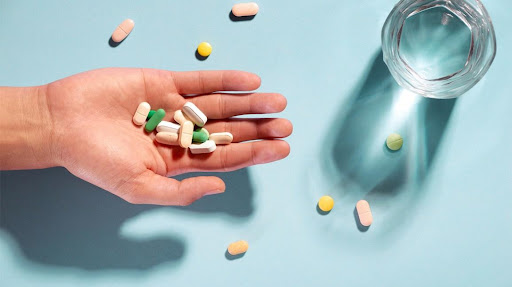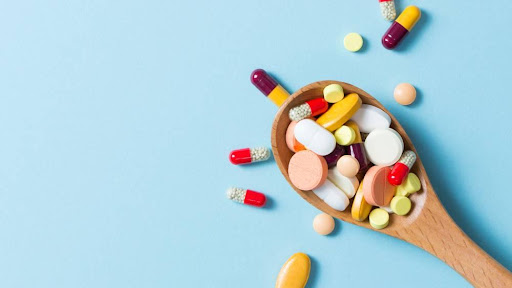Managing mental health issues may be difficult, especially when additional drugs are involved. It’s crucial to be educated and dispel any myths that could be preventing us from reaching optimal health in light of the wealth of information available and the sometimes-conflicting recommendations on how to effectively care for our mental health requirements. This page debunks common misconceptions regarding dose, side effects, and lifestyle issues while managing medications for mental health in an effort to reduce misunderstanding. Find all you need right here, from comprehending enabling technology like automated pill dispensers to investigating potential concerns related to certain prescriptions. Therefore, continue reading if you’d want additional information on how to properly manage your mental and emotional wellness using medicine.
- Only For People With Severe Mental Health Conditions
One of the myths about medication management for mental health is that it’s only necessary for people with severe conditions. The truth is, anyone who has been prescribed medicine to treat mental health issues can benefit from proper medication management. Even people with mild or moderate concerns may need to keep an eye on their intake and adjust as needed. It is also important to note that mental health can change over time, so it is important to stay on top of your medication management. Furthermore, the best treatment plan is determined on a case-by-case basis and may involve a combination of medication, therapy, lifestyle changes and other interventions.
2. Medication Is The Only Treatment Necessary

The idea that drugs are the sole kind of treatment required for managing medication for mental health is another fallacy. While it’s true that some people react quite favorably to particular drugs, they cannot treat all mental health problems on their own. Everyone should take a holistic approach to controlling their disease, taking into account food, exercise, stress levels, and sleep hygiene. Even if you are taking medicine for your mental health requirements, it’s crucial to focus on other variables as well so that you can maintain equilibrium and general health. Furthermore, the psychiatrist online should also recommend lifestyle changes, such as diet and exercise, to supplement the medication they prescribe.
3. Medication Side Effects are Unavoidable

The idea that adverse effects from administering drugs for mental health are inevitable is another misconception. While some people may only suffer minor side effects, or possibly none at all, others may find it more challenging to adjust to their medications. Any possible adverse effects should be discussed with your doctor, and you should work together to modify the dose if necessary. In addition, modifying one’s way of life via activities like exercise and meditation might help lessen the negative effects of some drugs.
4. Medication Is the Only Option
Another misconception is that the sole method for treating mental health issues is through medication. While many people choose to use prescription pharmaceuticals, there are several natural and alternative techniques that may assist lessen symptoms without the use of medications. This includes modifying one’s way of life through regular exercise, nutritious diet, mindfulness exercises, counseling, and other means. Many individuals also think that taking the “correct” medication would suddenly enhance their mental health, but it’s vital to realize that everyone’s response to medication will differ.
5. Medication Is Abusive or Unnecessary
According to this misconception, taking drugs either makes you a horrible person or they are not essential since you can treat mental health problems without them. This is completely untrue; in actuality, plenty of people use prescription drugs to get relief from their ailments. Never accept a doctor’s prescription for medication as an admission of failure; rather, view it as a tool to help manage symptoms and enhance quality of life. A further indication of a drug’s efficacy is the fact that it has been in use for so long.
6. Medication Is a Band-Aid
It’s true that medication can be used to help manage mental health issues, but it should not be viewed as the only or even primary solution. While pharmaceuticals do give symptom alleviation, they do not address the underlying causes of mental illness. Therefore, medications and therapies are used in conjunction as complementary treatments. People can learn how to successfully manage their symptoms by employing therapies like cognitive-behavioral therapy (CBT), which aims to identify the causes of their symptoms.
7. You Need to Take the Highest Dose Possible
This is not always the case; in fact, better outcomes are not always associated with bigger dosages. The quantity of medicine required for a person depends on their unique situation and medical background. An excessive amount of some substances can have harmful effects, such as an increased risk of addiction or overdose, or it can even make some people’s symptoms worse. After discussing all possible dangers and advantages with a doctor, it is preferable to take the lowest effective dose for your specific scenario.
8. Medications Are All Addictive

Sedatives and opioids, among other medications used to treat mental health conditions, have the potential to become addicted when used often or in greater dosages. Other drugs, on the other hand, don’t lead to addiction; they only last a short while and are often recommended to treat sudden symptoms. Based on research studies or clinical experience, your doctor ought to be able to describe any possible hazards connected to your specific medication.
9. Side Effects Are Intolerable
Although certain typical side effects of some drugs might be unpleasant, they are frequently transient and may go away as the body becomes used to the medication. Most likely, your doctor may advise you to alter your lifestyle or prescribe other medications that could lessen typical adverse effects. Additionally, alterations to one’s way of life, such as abstaining from alcohol or caffeine, are frequently advised.
10. I Don’t Need a Doctor’s Supervision

To keep track of any potential changes, it is crucial to be closely watched when taking medicine for mental health disorders. Throughout your therapy, your doctor should keep an eye on you and change the dosage as required. It’s also crucial to remember that some drugs should never be abruptly stopped. Any modifications must be made gradually and under your doctor’s guidance to ensure that any potential adverse effects are adequately addressed.
Conclusion
In conclusion, it is important to dispel the aforementioned beliefs concerning the administration of mental health medications since they are untrue. It’s crucial to manage your mental health with a professional’s assistance and to take safety measures, such as abstaining from alcohol and caffeine when using medications. When dealing with mental health concerns, you may make life much simpler with careful monitoring, a precise diagnosis, and the right meds.

